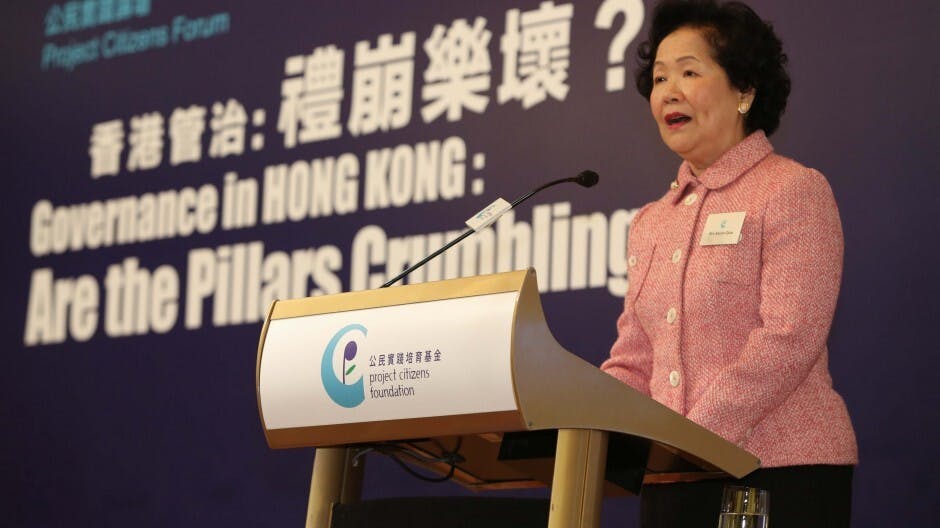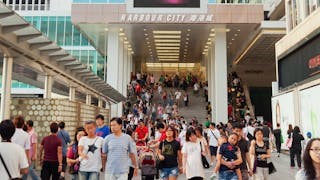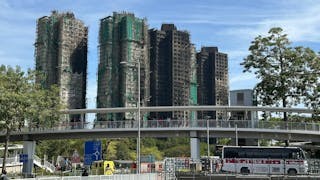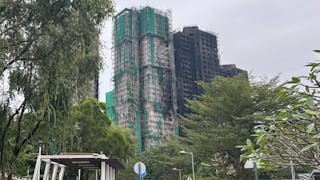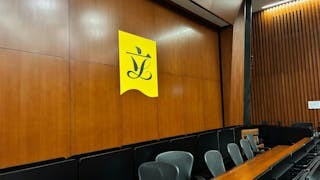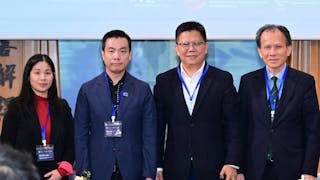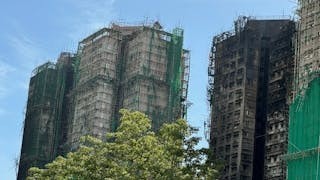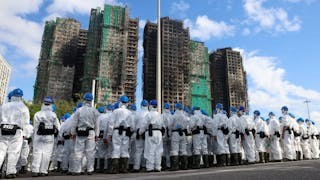編按:近日社會就「港獨」和釋法等一連串問題鬧的沸沸揚揚,引起公眾對司法制度的討論。有見及此,公民實踐培育基金於11月26日舉辦公民論壇,題目為「香港管治:禮崩樂壞?」,與公眾討論香港的管制之道,並分享他們在政治、法律、企業及學術層面的經驗和專業知識。講者包括:
公民實踐培育基金董事及特區政府前政務司司長陳方安生(致歡迎辭)
前港督、現任牛津大學校監彭定康男爵(全文按此)
香港資深大律師、前公民黨主席及前立法會議員余若薇女士(全文按此)
香港大學校長馬斐森教授
亞洲獨立投資公司GEMS非執行主席及長江實業地產獨立非執行董事馬世民
首先非常歡迎各位蒞臨今日由公民實踐培育基金舉辦的「香港管治:禮崩樂壞?」公民實踐論壇。今次乃基金一連串論壇的其中一個,整個系列都是環繞着香港這個自由社會的基本元素。過去論壇曾涵蓋的議題包括新聞自由、學術自由及院校自主、香港作為國際金融中心的地位,以及較早前舉行的「誰帶頭摧毀廉署和法治?」論壇。
多個月前,當基金董事會討論論壇的題目時,我們想像不到論壇舉行的今天,無論香港抑或海外,是處於如此政治動盪的局面。英國脫歐公投及美國總統選舉的結果,都令不少權威人士大出意料,同時亦帶來前所未有的社會分化和不穩。兩個國家,都有建基於民主制度上源遠流長的管治傳統,但今天,民粹主義壓倒了傳統的政黨政治,有時惡意攻擊更取代了理性政策辯論。
在香港,我們亦同樣見證着一個政府與人民背道而馳的趨勢,例子有2014年的雨傘運動及最近「本土」思潮的冒起。不過,本港與英美兩國有一個非常重大的分別,就是香港距離民主選舉產生的政府首長及議會主席的路程仍然相當遙遠,所以我們必須反覆思量,究竟現有管治的基石是否足夠強韌去抵禦壓力,抑或在社會,尤其年青人的不滿情緒日漸加劇、香港的自主不斷被北京的干預所蠶食的情況下,已變得危在旦夕,面臨崩潰?
管治制度 法治為本
我們管治制度的重要支柱是甚麼?法治是最基本的防護網,支撐着一個文明社會的各個範疇。如果我們能夠繼續享有一個真正獨立的司法制度、法律面前人人平等、所有執法機關都能夠保持政治中立和廉潔,法治才能最終得以保障。
要確保政府政策公開透明並向公眾負責、公帑用得其所、政府審慎理財,行政與立法機構相互之間的權力必須有足夠的制衡。優良政府領導層的一些特質不可取替, 這些包括領袖必須有遠見、正直、願意聆聽及回應社會訴求、真誠致力維護基本法及「一國兩制」承諾給予香港人的權利和自由。
言論自由、集會自由、新聞自由、宗教自由及學術自由等都是環環緊扣,如果任何一種自由受到破壞,其餘都會逐步受到侵蝕,管治的基石便會開始崩潰。引入廉潔及尊重人權的文化,對非政府機構和私營部門同樣重要。只有這樣,我們才能確保我們珍惜的公平、開放、穩定的社會得以保障。
我的發言會集中討論我自1993至2001年領導,並令我非常驕傲的公務員隊伍。過去40年,我們有一隊忠誠、能幹、廉潔的公務員隊伍服務本港社會,他們都能夠保持政治中立,制訂及推行以香港人整體利益為依歸的政策。
公務員體制其中一個賴以成功的重要元素,是公務員的晉升和委任都是基於論功行賞。在我的年代公務員的文化是,即使資歷較淺的同事也鼓勵他們表達和提出意見,甚至有需要時禮貌地表示不同意上級的看法。
政府制訂政策的過程非常審慎,確保經過深思熟慮,並衡量當中的利與弊,而問責的原則亦是根深蒂固,人人謹守。如有出錯,職級較低的同事也不會因要維護上級的面子而被置於無力還擊的境地。在不同的崗位,包括作為部門主管及政策局的首長,我都非常清楚最終我的責任是無可推卸的。
可惜,這些優勢許多已被侵蝕。過去十年,那些有能力的中級公務員,尤其負責制訂重要政策的政務官持續地流失。在決策過程變得愈來愈「由上而下」和不透明的情況下,那些留任的公務員,已逐漸呈現出一種冷漠現象,因為他們覺得站出來捍衛自己的意見已經變得毫無意義。
今天不時會聽到私營機構投訴,要取得政府部門或機構的一些常規性的決策,都變得愈來愈困難,因為負責的人員往往先要確保,一旦事情稍有差池,「責任不在我方」。政策局及政府部門中這種日益明顯的「穀倉效應」,帶來的是支離破碎和不協調的政策。現時,我們極之需要的是一個領袖,能夠以宏觀的視野去維持並鞏固香港作為世界級國際城市的地位。
以上提及的失誤幾乎全部可以歸咎於缺乏良好的領導。我一直認為,於2002年由前特首董建華先生首次引入的政治委任制,存在先天性的缺陷。那些領導政策局的重要首長級官員缺乏認受性,因為他們是由非民主選舉產生的特首所挑選委任,而特首本身也沒有認受性。在實踐中,制度亦過於倚賴委任前公務員,這種做法進一步削弱官僚的地位。而委任缺乏行政經驗的外來者進入架構,他們大部份的表現欠佳,又令政府的聲譽進一步受損。
制度存在缺陷 威脅已陸續浮現
建立一個模範的公務員體制需經年累月,但去拆毀則不費吹灰之力。好像我們一直尊重及欣賞的警隊,變得愈來愈政治化,跟民眾的距離亦愈來愈遠。一個工作曾獲高度評價的副廉政專員,早前無緣無故被降級,又令外界感到非常不安,憂慮是否與其鍥而不捨地調查特首梁振英的投訴有關。近日,人大常委會在本地法院尚未就宣誓提出的司法覆核案作出裁決前,已對基本法104條進行釋法,令本港另一管治的重要基石 — 獨立司法制度所保障的法治 — 同樣受到衝擊。
現時,立法會內大部份議員並沒有秉持獨立的立場去看待議題,相反,他們只跟隨政府的吩咐,而更令人沮喪的是,他們有些只聽從中聯辦或中央官員的旨意,實在沒有事情比這。他們只靠功能組別的存在才能夠在議會生存,惟功能組別的議員卻只是由少數選民或者不是人而是公司揀選出來。最近9月的立法會選舉,竟然有12位立法會功能組別議員是在毫無競爭下自動當選。
這個有缺陷的選舉制度,已存在多年。問題是,我們不但難以於短期內預見政制的改革,制度中的不公平更愈來愈加劇而且根深蒂固。對香港立法機關管治帶來的威脅已陸續浮現 — 先是一個相對低職級的公務員可以隨隨便便地否決立法會選舉候選人的參選資格,而近期又有主張「本土」或支持港獨的立法會議員被取消議員資格。
我強烈支持基本法及「一國兩制」,提倡港獨是不切實際,也不恰當。但政府愈用高壓專橫的手段去打擊這些所謂「本土」思潮,所面對的反抗必愈大。更何況,社會上許多不同界別,特別是年青人,他們的憤怒、失望和沮喪都是千真萬確的,他們要求的是一個回應。今天香港社會嚴重分化,我們需要一個有能力和願意盡快修補社會裂痕的特首。
香港是一個自由的社會,愛國主義是可以培養,但卻不能強加;愛國主義亦不能視作武器去壓制言論及思想自由。話雖如此,任何不尊重國家的言行也是不能接受的,而在過程中亦會破壞爭取民主改革者的努力。
在中國的和平崛起和繁榮發展方面,香港一直扮演着一個重要的角色。香港會繼續這樣做,但當局必須確保「一國兩制」的承諾得以兌現,香港市民能夠有足夠空間去維持和守護既有的生活模式和核心價值,自由選擇如何為祖國持續的發展作出貢獻而不是由北京強加於港人身上。
我們管治的支柱受到動搖,已是不爭的事實。我們必須盡一切努力,防止管治制度的核心價值進一步被侵蝕,以免管治的支柱崩潰。作為香港大學的舊生,我特別關注近日對大學管治及院校自主的政治干預,我期待聽取稍後馬斐森教授在這方面所持的觀點。
多謝各位。
I would like to extend a warm welcome to you all to this Project Citizens Forum on ‘Governance in Hong Kong; Are the Pillars Crumbling?’. This is the latest in a series of Forums organised by the Project Citizens’ Foundation, which focus on fundamental components of Hong Kong’s free society. Previous Forum topics have included press freedom, academic freedom and institutional autonomy, Hong Kong’s role as an international financial centre and the recent assault on the integrity of the ICAC.
When the Board of the Foundation selected the subject of this Forum months ago, we could scarcely have imagined that it would be held at a time of such political upheaval, both here in Hong Kong and overseas. The results of the Brexit vote in the UK and the presidential election in the US have confounded the pundits and precipitated an unprecedented degree of social division and uncertainty. In both countries, each with a long tradition of governance founded firmly in democratically based institutions, populism has prevailed over traditional party affiliations, and sometimes vicious mud-slinging over reasoned policy debate.
In Hong Kong, we are witnessing a similar trend of disconnect between government and governed, as exemplified by the 2014 Umbrella Movement and the recent rise of ‘localist’ sentiment. There is a key difference, however. Hong Kong remains a long way from achieving a democratically elected head of government and legislature. Are our pillars of governance strong enough to withstand the current pressures, or are they in danger of crumbling under the weight of social discontent – particularly among young people – and the increasing erosion of Hong Kong’s autonomy by interference from Beijing?
What are the key pillars of our system of governance? The fundamental bulwark is the rule of law. It underpins all aspects of civil society. The rule of law can only ultimately be safeguarded if we continue to enjoy equality before the law and have a truly independent Judiciary and law enforcement agencies that are corruption free and politically neutral.
Adequate checks and balances between the powers of the Executive and the Legislature are crucial to ensuring transparency and accountability in government policy-making, and the prudent use of public funds. There is no substitute for good leadership of all branches of government: leadership that is characterised by vision, integrity, a willingness to listen and respond to the needs and wishes of the community and an absolute commitment to defend the rights and freedoms of Hong Kong people under the Basic Law and ‘one country, two systems’.
These freedoms – of speech and of assembly, of the press, of religion, of academic thought -are all inter-locked: if one is undermined, others too will start to be eroded and the pillars of governance will indeed begin to crumble. It is just as important to embed the principles of integrity and respect for the rights of the individual within the culture of private sector and non-government institutions. Only in this way can we safeguard the just, open and stable society we all cherish.
My opening remarks will focus mainly on the civil service which I was immensely proud to lead between 1993 and 2001. Over the past 40 years, I believe our community has been well served by a loyal, able and largely clean civil service, working without political bias to formulate and deliver policies that are in the best interests of Hong Kong people.
A key success factor has been that members of the Civil Service were appointed and promoted solely on the basis of merit. In my day, the culture was one in which even quite junior officers were encouraged to put forward ideas, to argue their case and, when appropriate, politely disagree with their seniors.
Policies were crafted with care, to ensure that all the pros and cons of a particular course had been fully weighed up. The principle of accountability was deeply embedded and shared. If mistakes were made, junior staff were not thrown to the wolves in order to the save the face of their seniors. In successive roles as a head of department and then policy branches (now bureaux) I was always clear that the buck ultimately stopped with me.
Sadly, many of these strengths are being eroded. The past 10 years have seen a depressingly steady exodus of capable middle ranking staff, particularly from the core policy-making ranks of the Administrative Service. Among those who have remained, there are signs of growing apathy: a recognition that there is no point in standing up for your views in a decision-making process that is becoming increasingly top-down and opaque.
One hears constant complaints from the private sector that it is getting harder and harder to obtain even routine decisions or rulings from government departments and agencies, as the responsible staff look over their shoulder to make sure there is no risk of them being blamed should something go wrong. An increasing ‘silo’ mentality, on the part of departments and policy bureaux, is resulting in fractured and inconsistent policies. What we desperately need is leadership that looks holistically at the big picture goals needed to sustain Hong Kong as one of the world’s great international cities.
Almost all of these failings can be attributed to a lack of good leadership at the top. I have always taken the view that the Political Appointment system, first introduced by former Chief Executive Mr Tung Chee Hwa in 2002, is fundamentally flawed. The Principal Officials who head up our policy bureaux have no legitimacy, other than that they are hand-picked by a Chief Executive who himself has no democratic mandate to govern. In practice, the system has relied heavily on appointment of former civil servants, further depleting the ranks of the bureaucracy. Appointments of outsiders, typically with little or no experience of administration, have by and large been embarrassing failures.
While it takes decades to build an exemplary civil service, it takes no time at all to tear it down. Our once admired and respected Police Force is becoming increasingly politicised and alienated from the public. The sudden and largely unexplained demotion of a formerly highly-praised Deputy Commissioner of the ICAC has caused deep disquiet, due to suspicions it was triggered by her diligence in investigating a complaint against the Chief Executive, C Y Leung. Now, another fundamental pillar of governance, the rule of law safeguarded by an independent Judiciary, is also being challenged by the recent interpretation of Article 104 of the Basic Law, while a case pertaining to its application was under adjudication in the local courts.
Nothing can be more depressing than a Legislature where a majority of members refuse to take an independent stance on any issue that comes before them. Instead, they simply do as they are told by the local Government or, worse still, by the minions of the Central Government based in Beijing’s local Liaison Office. This majority is sustained only by the existence of Functional Constituencies, many of which are ‘rotten boroughs’ with only a handful of electors, some or all of which are not even human beings, but companies. At the recent Legislative Council elections last September, no less than 12 Legislators were returned unopposed.
We have been living with this flawed electoral system for many years. The problem is that, far from seeing the prospect of constitutional reform on the near horizon, the inequities in the system are becoming more entrenched and even exacerbated. New threats to Hong Kong’s legislative pillar of governance are emerging as we speak: first in the form of potential LegCo candidates being barred from standing for election on the say-so of a relatively junior civil servant and more recently by systematic moves to disqualify elected legislators who appear to harbour ‘localist’ or pro-independence sympathies.
I support strongly the Basic Law and ‘one country, two systems’. Advocacy of independence for Hong Kong is neither realistic nor appropriate. But the more the Government tries to stamp out these so-called ‘localist’ sentiments, by autocratic and heavy-handed tactics, the more resistance it will face. The anger and frustration of many sectors of our community, particularly young people, is real and is crying out for a response. Hong Kong today is a deeply divided society. We need a Chief Executive who is able and willing to begin the healing process.
In a free society, such as ours, patriotism can be nurtured but not mandated. Nor can it be deployed as a weapon to suppress freedom of speech and thought. That said, there is no excuse for acts of calculated disrespect to our nation and, in the process, undermining the efforts of others to achieve democratic reform.
Hong Kong has played a key role in supporting the rise of a peaceful and prosperous China. We will continue to do so, provided ‘one country, two systems’ is faithfully honoured and Hong Kong people are given the space they need to maintain their way of life and core values and to chart a course towards supporting the Motherland that is in their interests and not simply dictated by Beijing.
There can be little doubt that our pillars of governance are being shaken. If we are to protect them from crumbling, we must all play our part in resisting the progressive erosion of the core values underpinning our system of governance. As a proud alumna of the University of Hong Kong I am particularly concerned at the recent political interference in the governance of the University and the assault on its institutional autonomy. I will be listening with particular interest to Professor Mathieson’s views in this regard.
Thank you for your attention.



